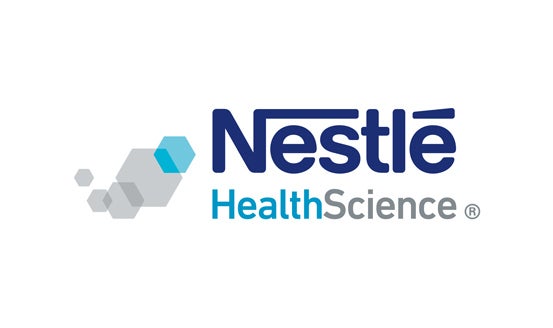
MNI - Mobilisation to Fight Against Malnutrition
Powerful initiative aligns politicians, health authorities and caregivers
Medical Nutrition International Industry awards grant to Hellenic Society for Clinical Nutrition and Metabolism
14 September 2012 – The 34th congress of the European Society for Clinical Nutrition and Metabolism (ESPEN) saw the Hellenic Society for Clinical Nutrition and Metabolism (GRESPEN) announced as the winner of the 2012 Medical Nutrition International Industry (MNI) grant; an award given to the most innovative, national initiative to fight malnutrition in Europe.
The grant of €30,000 was awarded to the GRESPEN in recognition of their ‘exemplary’ work in raising awareness in the fight against malnutrition and effecting change in clinical routine following the implementation of a new legal framework.
Their entry, submitted by Professor Kouvelas and Dr. Chourdakis, for and on behalf of the board of GRESPEN, set out to meet two primary objectives; to introduce new legislation to identify and manage malnutrition, and to ensure relevant international guidelines and training materials were available in the native language. Both objectives were achieved.
Speaking from the ‘Fight Against Malnutrition’ Symposium at ESPEN where the grant was awarded. Professor Pierre Singer, Chairperson of ESPEN Executive Committee commented: ‘The submission by GRESPEN demonstrated real insight and relentless determination to tackle malnutrition, known to be a health concern and a cost burden. Their comprehensive, not to mention ambitious strategies for unlocking resources at a time of severe financial restraint and political unsettlement in Greece, was particularly impressive. We really hope this grant will enable the team to continue their important work and provide a template for other nations.’
Following the announcement, Dr. Chourdakis commented: ‘We are proud to say that both our objectives were achieved, however our main aim was to change the Greek legislation to allow the whole population to benefit. The new legislation incorporates criteria including the introduction of clinical nutrition units and nutrition support teams into all public hospitals and to establish mandatory screening for malnutrition. We also translated the existing ESPEN materials into Greek language as a cost-effective way to enable a greater number of medical doctors and caregivers to be more informed and educated on issues relating to malnutrition, thereby increasing awareness. We are delighted to receive this grant from MNI and look forward to utilising it to further educate our fellow peers and colleagues in ways to reduce the incidence of malnutrition.’
Furthermore, to coincide with the award of the grant, a new Dossier, ‘Oral Nutritional Supplements (ONS) to Tackle Malnutrition’1 was also launched today at ESPEN. The Dossier draws on a wide range of independent evidence and research and contains a collection of the latest data, including key insights and facts relating to malnutrition’s causes, prevalence, and consequences. The Dossier, available to all healthcare professionals and researchers, highlights the need for routine screening in hospitals, care homes and the community, complementing the Greek initiative.
The recognition of malnutrition continues to increase across Europe and it is now believed to be more prevalent than obesity. The costs associated with malnutrition in Europe now amount to a staggering €170 billion each year2 - more than double the amount spent on obesity based on an extrapolation from UK figures.3 Additionally, the Dossier reports that an estimated 33 million people are at risk of malnutrition,2,4 and 50% of malnourished patients do not receive nutritional intervention,5,6 despite the availability of effective solutions.
The newly launched Dossier contains a compilation of the evidence demonstrating Oral Nutritional Supplement (ONS) as an effective and proven non-invasive solution to tackling malnutrition. This Dossier demonstrates how the use of ONS can help to reduce the burden for the patient, as well as for hospitals and healthcare systems, through their positive impact on clinical outcomes and long term cost savings.
To read more about the Greek submission please visit: www.medicalnutritionindustry.com or
www.ESPEN.org (see: Malnutrition/Fight Against Malnutrition).
References
1. Medical Nutrition International Industry. Oral nutritional supplements to tackle malnutrition: a summary of the evidence base. 3rd version. Brussels: MNI, 2012.
2. Ljungqvist O, de Man F. Under nutrition: a major health problem in Europe. Nutr Hosp 2009;24:369-70.
3. House of Commons Health Committee. Obesity: Third Report of Session 2003-04. Volume 1. London: Stationery Office. 2004.
4. Ljungqvist O, van Gossum A, Sanz ML, de Man F. The European fight against malnutrition. Clin Nutr 2010;29:149-50. 5. Meijers JM, Halfens RJ, van Bokhorst-de van der Schueren MA, Dassen T, Schols JM. Malnutrition in Dutch health care: prevalence, prevention, treatment, and quality indicators. Nutrition 2009;25:512-9.
6. Van Nie-Visser NC, Meijers JM, Bartholomeyczik S, Lohrmann C, Reuther S, Schols JMG, Halfens RJ. Comparing prevalence of malnutrition and nutritional care in care homes in Germany, Austria and the Netherlands. Clin Nutr Suppl 2009;4(2):45 (abstract 99).
Ends
Note to editor:
About MNI
The Medical Nutrition International Industry (MNI), founded in 2006, is the international trade
association for companies providing products and services that support patient management and
rehabilitation by the appropriate use of specialised nutritional solutions, including both parenteral
and enteral nutrition. For more information, please visit www.medicalnutritionindustry.com.
The European Society for Clinical Nutrition and Metabolism (ESPEN)*
The aims of ESPEN are to encourage the rapid diffusion of knowledge and its application in the field
of Parenteral and Enteral Nutrition or, more broadly, Clinical Nutrition and Metabolism. It promotes
experimental and clinical research, fosters high ethical standards of practice and investigation, and
promotes contact between investigators and clinicians in related fields. Find out more:
http://www.espen.org/
- Press Release (PDF)
- MNI Facts and Figures (PDF)
For more information http://www.medicalnutritionindustry.com/
